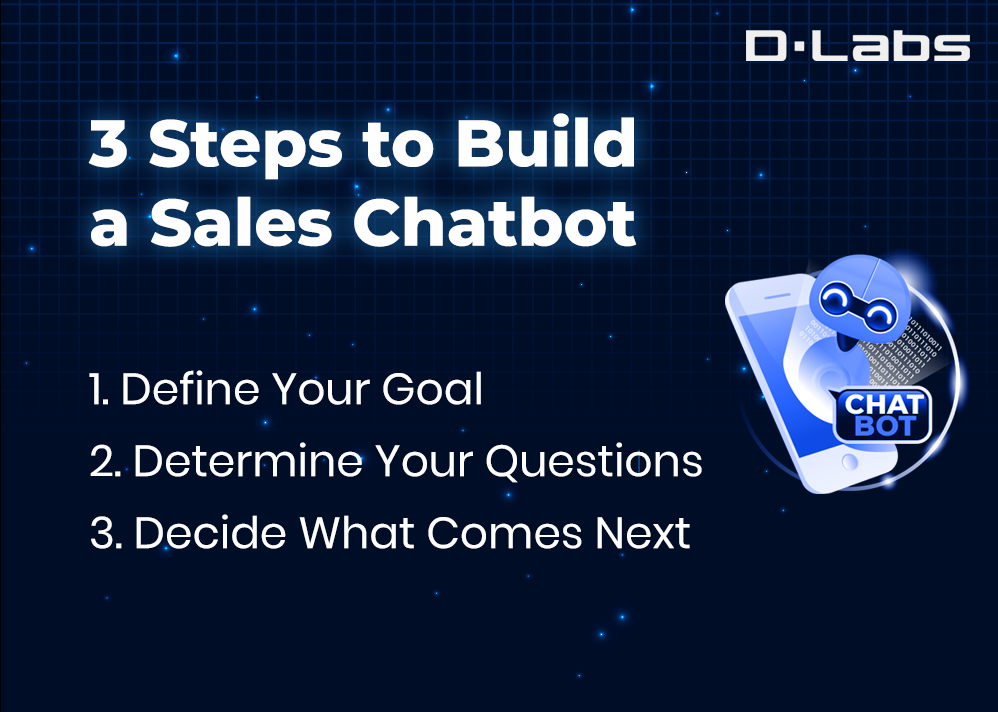Chatbots are the new ‘front-of-house’ for the internet. Head to any established commercial website, and you’ll likely find one nestled in the corner of your screen. The chatbot’s ubiquity is thanks to its ability to automate processes: be it answering FAQs, guiding visitors to the right sub-page, or troubleshooting basic problems.
It’s no surprise, then, how chatbots are now revolutionizing sales: if you want to learn how the technology can level-up your sales process, here’s the article for you.
From Basic Service Bots to Chatbots in Sales
Chatbots are not a new phenomenon. They’ve been reliable customer support agents for the best part of a decade. And these days, their artificial intelligence resolves up to 80% of routine queries.
Still, according to Drift’s 2020 State of Conversational Marketing, one-third of clients remain frustrated by many brands’ failure to respond to questions in good time — let alone their flat-out refusal to offer ‘out-of-hours’ support.
And, in all fairness, we can understand their annoyance.
People from all 195 countries are happy to have conversations with web-based chatbots. So is there any excuse left for a company not to offer this on-call service? Given the global demand, perhaps not.
Especially now that these conversations extend far beyond basic support, with prospects asking for advice on ‘If airline X has availability on flights to southern Italy in October?’ Or ‘If Product Y might be in-stock again soon?’
Such queries shift a chatbot’s focus from post-sales troubleshooting to pre-sales support. And if you deploy a bot that can detect the intent behind the questions, you’ll be one step closer to anticipating your prospects’ real needs, which will ultimately help you close more sales.
Therein lies the secret to how chatbots can revolutionize your sales process. Now, here’s how to use them in each stage of the funnel.
How Do Chatbots Help in Sales?
You can deploy a chatbot at any stage in your sales funnel.
From lead generation to sales qualification to customer relationship management: bots have a role to play. But here are the most effective actions to focus on, depending on where your bot sits in your sales process.
- Awareness: Web-based chatbots can initiate conversations with browsing prospects, getting them to engage with your brand. And using this new relationship, the bot can nurture the prospective customer to the next stage.
- Interest: Once a prospect shows interest (maybe by returning to the site or visiting several pages), the chatbot can recommend products or services based on browsing history. It can also answer questions or hand a prospect over to an actual sales rep.
- Decision: If a customer doesn’t buy upfront, the chatbot can forward extra information and offers, using previous interactions to understand what the prospect might find useful. This step can even qualify leads, saving time, and resources down the line.
- Action: Post-sales support is one place a chatbot is known to help. But have you thought about using your bots for retargeting, encouraging repeat purchases, and creating a loyal customer? If you haven’t, now’s the time to start.
And if you choose to program a chatbot to handle any stage of your funnel, you can expect the following benefits:
A Scalable Sales Process
Scalability is essential in every business. Smaller operators can use chatbots to handle multiple inquiries at once, in place of hiring a sales team. Whereas larger companies might deploy a chatbot as a front-line sales rep, identifying the most promising prospects for a human to take on.
Shorter Sales Cycles
When a visitor lands on your website, your chatbot can immediately qualify a lead to determine (1) is this visitor just browsing. Or (2), is this person likely to buy? If the prospect seems like the latter, the bot can alert a rep. If they appear to be the former, the bot can handle any queries.
Fewer Frustrated Prospects
Forget customers ever waiting on a response — because a chatbot never sleeps. They can offer on-call support at every hour of the day. And if a query is particularly complicated, they can raise a ticket for a human operator to follow-up the next day.
A More Personalized Customer Experience
Even in the age of automation, a personalized experience is never far away. In fact, it’s often easier to create. After all, chatbots know what a customer has looked at, liked, and bought, making it simple to personalize recommendations. And if someone wants to compare prices or features, the chatbot can help with that too.
Higher Engagement, More Conversions
When a chatbot says ‘Hi,’ anywhere from 15-60% of visitors will click. Better still, bots have been known to increase lead conversion by as much as 36%. Chatbots routinely outperform social media, email marketing, and targeted ad campaigns, with chatbot conversations among the most powerful tools in the marketing manager’s arsenal.
3 Steps to Build a Sales Chatbot
Designing and building a chatbot isn’t rocket science. But it does take thought — and before you even start to build, we suggest you address these three points:
1. Define Your Goal
First and foremost, you must define what your chatbot will do? The answer to this question determines if the chatbot will only qualify leads (before referring them to a sales rep) or if they’ll try to get a prospect to buy.
2. Determine Your Questions
Now you know your goal, it’s time to design the conversation. This stage ensures your chatbot gathers the necessary information to satisfy point one. And the bot can tailor subsequent questions based on each response.
3. Decide What Comes Next
Every marketing interaction needs a follow-up. If a prospect doesn’t engage with a chatbot on the first time of asking (or if they respond, get distracted, and go silent), design a secondary sequence to re-engage the prospect after 24-48 hours.
We said this before, but it’s worth repeating: designing a chatbot isn’t overly complex.
But effective chatbots require technical elements, like natural language processing (NLP), to truly shine. That’s why we suggest businesses outsource chatbot development to experienced professionals who have built successful NLP-based projects before.
Only then will your chatbot revolutionize your sales process. And, ultimately, have a material impact on your bottom line.
Looking to take your sales process to the next level? Book a free consultation with a DLabs.AI NLP expert today.









